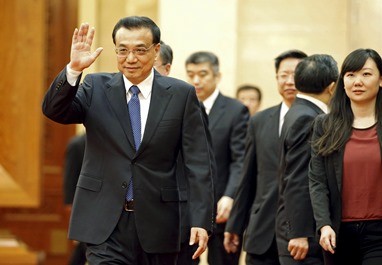The open letter addressed to Premier Li Keqiang, written by Wu Hai, a private entrepreneur, expressed the frustrations of many other entrepreneurs in dealing with government bureaucracy in China.
The letter was written by Wu, a 46-year-old CEO and founder of the Crystal Orange Hotel Group, on March 23 and was posted on his WeChat account as a public letter addressed to Premier Li Keqiang.
The Global Times reported that the letter received more than 40,000 views in one night and became the most-searched name on Baidu the next day.
According to the report, Wu's letter pointed out the difficulties faced by private companies, and denounced the bureaucracy of local governments as well as the police. He said that the issues they encounter are the result of improper policies and grass-roots level corruption.
Wu said he wrote the letter when he saw the news of Premier Li Keqiang's visit to the State Administration for Industry and Commerce in March where the Chinese leader pushed for the continued streamlining of administrative procedures.
Wu also said that some government rules result in gray areas where bribery and corruption thrived. He added that some private companies also find it difficult to get fair treatment in comparison with state-owned companies, especially in doing business with the government.
The report said that after the publication of Wu's letter, some senior government officials have approached him to get his suggestions.
Wu, who is also a member of the Chinese People's Political Consultative Conference of Beijing's Dongcheng district, said that a system of checks and balances must be made to tackle the issues, as he asked the government to give entrepreneurs that power to evaluate law enforcement and government agencies.
Xinhua, however, reported that the central government has taken tough actions to settle the issues. By the end of 2014, some 798 items which require government administrative approval had been canceled or referred to lower-level governments.
China's State Administration for Industry and Commerce has also implemented reforms, with the aim to simplify business registration, as the country reported a 48-percent increase in new business registrations, the report added.



























